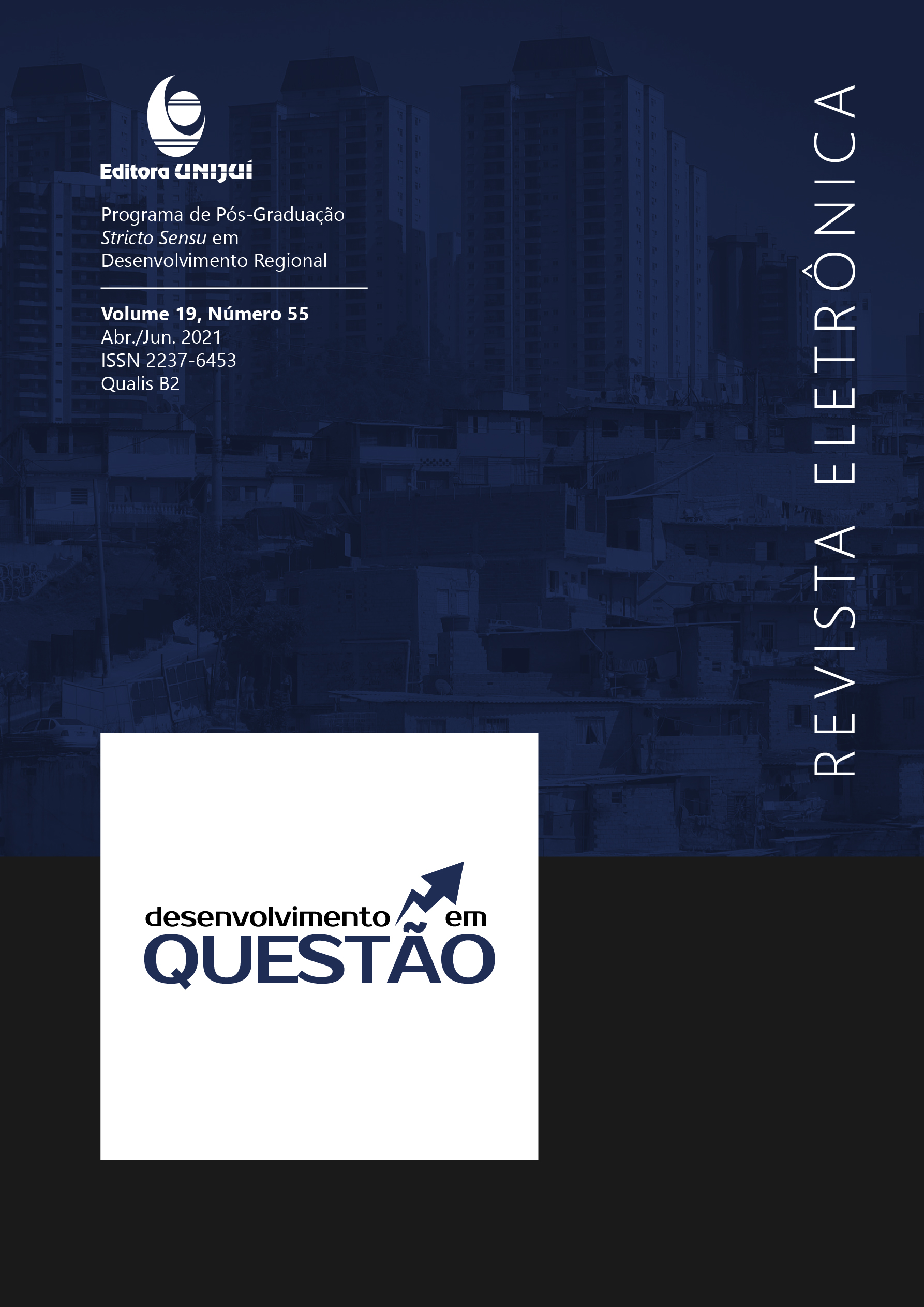LAND USE CHANGES FROM THE SUGARCANE EXPANSION IN THE WESTERN REGION OF SÃO PAULO STATE
LAND USE CHANGES FROM THE SUGARCANE EXPANSION IN THE WESTERN REGION OF SÃO PAULO STATE
DOI:
https://doi.org/10.21527/2237-6453.2021.55.10754Keywords:
Sugarcane. Expansion. Shift-share. Land use.Abstract
Brazil is the largest sugarcane producer and is highly competitive in ethanol production. The launch of flex fuel vehicles, in 2003, provided a new phase of expansion of this cultivation, mainly in the state of São Paulo. However, this process did not occur homogeneously throughout the state, being much more expressive in the western region. In this context, this study aims to analyze the changes in land use in the West Paulista region, between 2003 and 2018, caused by the expansion of sugarcane cultivation. For this purpose, the shift-share model was used, which, by decomposing the variation of areas, makes it possible to calculate the scale and substitution effects of the main activities under analysis. The results showed a conflict in land use between sugarcane and crops already installed, mainly soy, rubber and peanuts and that the expansion of sugarcane in the region was driven mainly by the replacement of crops such as corn, fruits, beans, coffee, wheat and rice, and also for the incorporation of pasture areas, consequently, of the cattle raising activity.
Downloads
Published
How to Cite
Issue
Section
License
By publishing in Revista Desenvolvimento em Questão, authors agree to the following terms:
All works are published under the Creative Commons Attribution 4.0 International License (CC BY 4.0), which allows:
Sharing — to copy and redistribute the material in any medium or format;
Adaptation — to remix, transform, and build upon the material for any purpose, even commercially.
These permissions are irrevocable, provided that the following terms are respected:
Attribution — authors must be properly credited, a link to the license must be provided, and any changes made must be indicated.
No additional restrictions — no legal or technological measures may be applied that legally restrict others from doing anything the license permits.
Notices:
The license does not apply to elements that are in the public domain or covered by legal exceptions.
The license does not grant all necessary rights for specific uses (e.g., image rights, privacy, or moral rights).
The journal is not responsible for the opinions expressed in the articles, which are the sole responsibility of the authors. The Editor, with the support of the Editorial Board, reserves the right to suggest or request modifications when necessary.
Only original scientific articles presenting research results of interest that have not been previously published or simultaneously submitted to another journal with the same purpose will be accepted.
Mentions of trademarks or specific products are intended solely for identification purposes and do not imply any promotional relationship by the authors or the journal.
License Agreement (for articles published from 2025 onward): Authors retain the copyright to their article and grant Revista Desenvolvimento em Questão the right of first publication.











